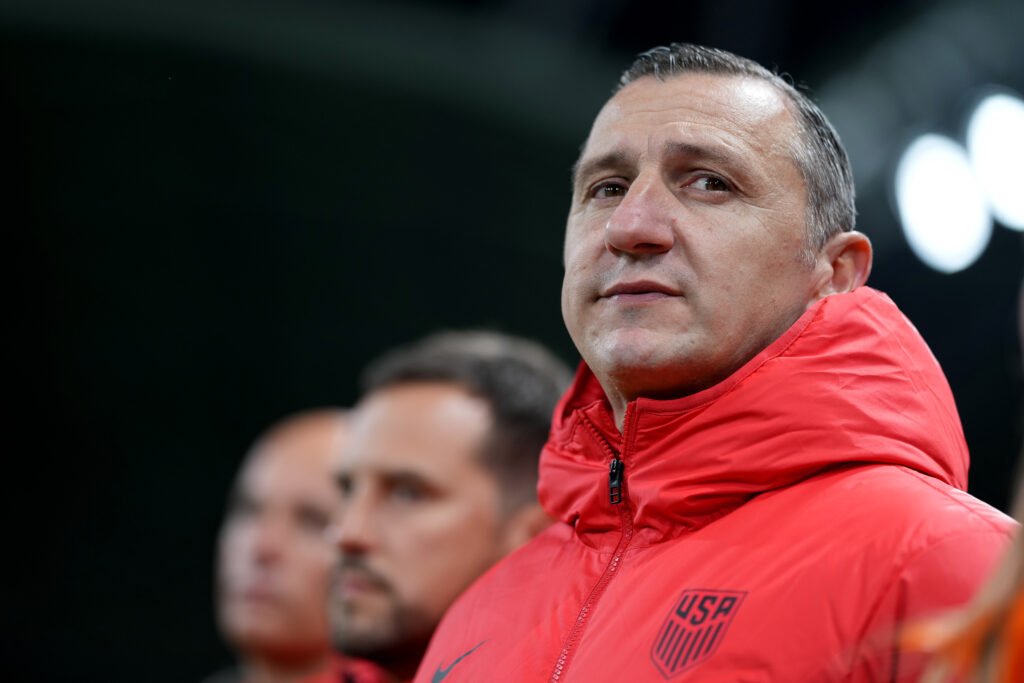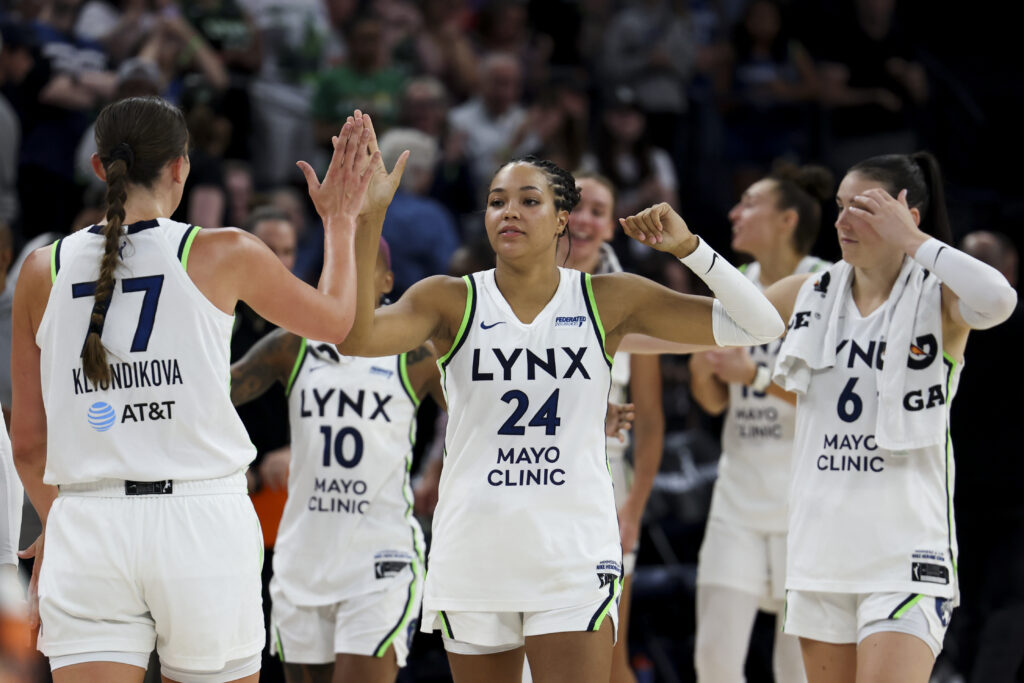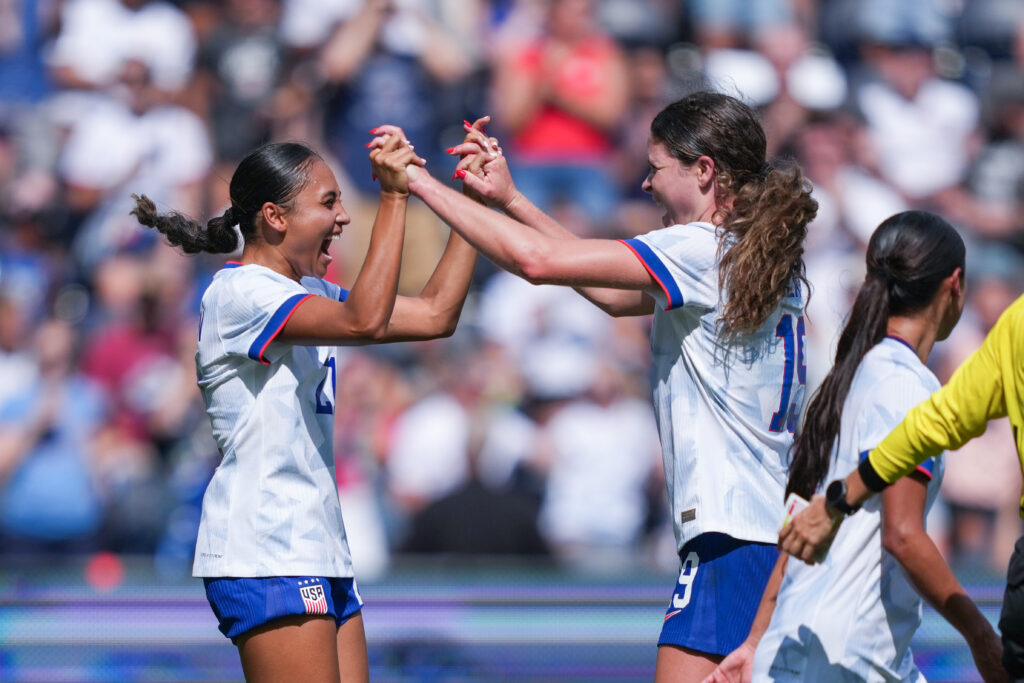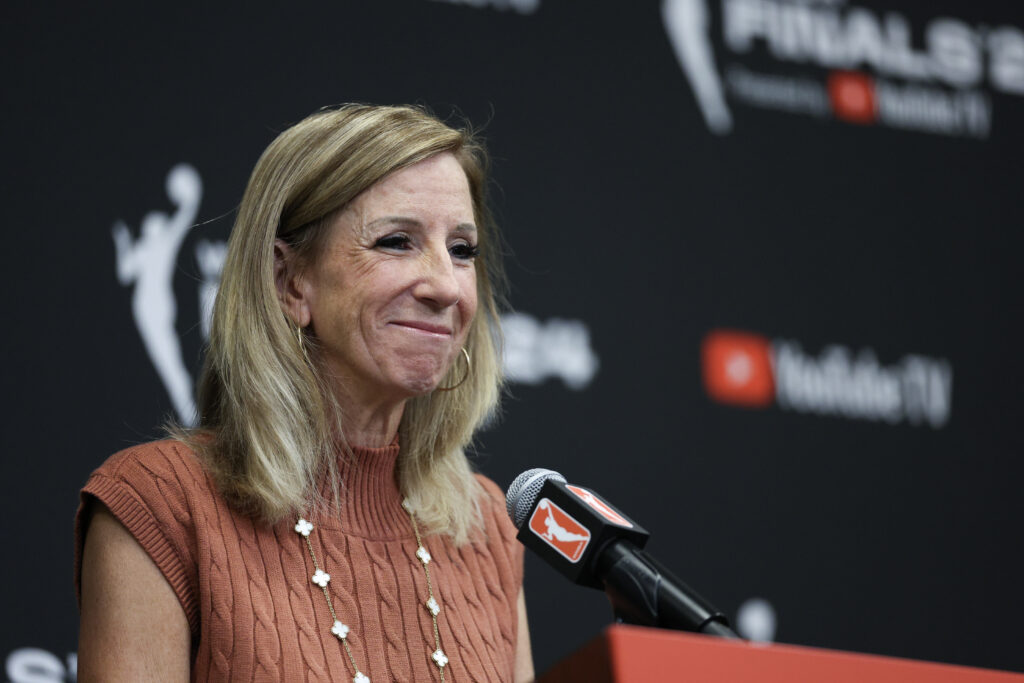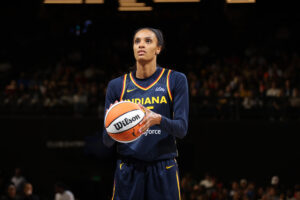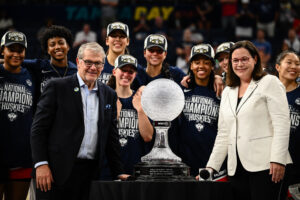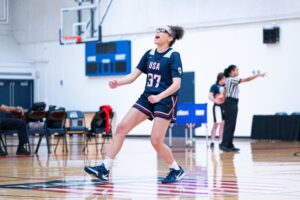Despite putting together their best overall performance of the 2023 World Cup, the U.S. women’s national team fell to Sweden by the thinnest of margins, eliminated in a penalty shootout in the Round of 16. The ball barely crossed the line after heroics by USWNT goalkeeper Alyssa Naeher, who became the first keeper to both save and successfully take a penalty in a Women’s World Cup.
“We just lost the World Cup by a millimeter,” Naeher told the FOX broadcast after the game, and her assessment was fair. It was perhaps the most fitting end to a tournament of missed opportunities by the reigning World Champions.
The U.S. outshot Sweden 21 to seven, with 11 shots on target to Sweden’s one. The U.S. completed over 500 passes and held the possession advantage as well as a significant xG advantage. They did everything possible to advance outside of actually putting the ball into the back of the net, and fell prey to one of the crueler endings to a match in recent memory.
USWNT head coach Vlatko Andonovski didn’t get this game wrong, exactly. The game itself was a testament to the team’s adjustments after a group stage where they had looked nothing like their former selves. Andonovski made a key change to the midfield, inserting Emily Sonnett as a dual defensive midfielder alongside Andi Sullivan. Sullivan, who herself had not been at her best in the tournament, finally had a ball-winner beside her to ease the defensive load. Lindsey Horan, in turn, assumed the forward-leaning midfield role, and suddenly the USWNT looked like a team that could pass through their spine again.
The tournament, as short as it might have been for the USWNT, will also be a testament to the team’s defense, which was once again excellent even in defeat. Naeher, who fielded questions about her form going into the World Cup, snagged balls out of the air to nullify Sweden’s crossing threat with ease, and the U.S. never looked in danger of losing the match in regulation.
Naomi Girma and Julie Ertz will forever be enshrined as one of the most statistically effective center-back pairings in USWNT World Cup history, conceding just two shots on goal over four games. As frustrating as the match was for the U.S. attack, Sweden never looked particularly dangerous going forward, even when given set-piece opportunities.
In many ways, all of the statistical advantages the U.S. flaunted for 120 minutes reflected exactly how Andonovski has always wanted his team to play. It was the product of a group ready for the toughest of grinds, never giving their opponent space to operate even if it meant sacrificing their own efficiency in front of goal. One of the team’s most creative players, Ashley Sanchez, got no time at this World Cup, with Andonovski all but conceding in the knockout rounds that artistry was not going to patch over his own inefficiencies in preparing the team for elimination soccer.
It’s not like the USWNT didn’t have chances; Sweden goalkeeper Zećira Mušović had the game of her life, making save after save to ward off what felt like the inevitable strike to put the U.S. ahead. The team’s finishing continued to be a weakness, with the talented front three of Sophia Smith, Alex Morgan and Trinity Rodman never fully amounting to the sum of their parts. Over the course of the match, it felt as if they had done just enough to avoid the random cruelty of a penalty shootout.
ZECIRA MUSOVIC COMES UP HUGE FOR SWEDEN 🧤 pic.twitter.com/ECGLg5pRdm
— FOX Soccer (@FOXSoccer) August 6, 2023
But doing just enough has always been the way Andonovski has managed this group, and for the four-time World Cup champions, it hasn’t been good enough to break back into a major tournament final. The team has grown since their embarrassing 3-0 loss to Sweden at the Tokyo Olympics, suffering nowhere near the same fate in any match of this World Cup. But as Andonovski focused on tightening up one part of the field, the team lost their freedom, and margins became much too thin in the other direction.
It’s fitting perhaps that many of the ills of the Andonovski era came to play in the crucial penalty shootout itself. Megan Rapinoe, USWNT icon and longtime stalwart in dead-ball situations, couldn’t control her delivery in extra time and skied her kick from the spot. It’s the first time she’s ever missed a penalty in a major tournament, in a harsh metaphor that all good things must eventually come to an end. Kristie Mewis and Kelley O’Hara were the long-awaited substitutes put on the field right before extra time ended; Mewis sunk her penalty, and O’Hara’s hit the post.
And Sophia Smith, who despite a rough tournament is still one of the brightest stars of the USWNT’s future, couldn’t control her penalty when given a chance to grab the glory and give her team a shot at the quarterfinals. Who gets empowered to succeed and when has long been a topic of conversation in USWNT circles. Andonovski was let down both by the longtime veterans he always made room for, and his own inability to let a new generation enter the spotlight on its own.
If this is the end of Andonovski’s tenure with the No. 1 team in the world, his notebook of statistical advantages that should have led to optimal outcomes will be a cold comfort to fans who would simply like to recognize the team they’re used to rooting for again. U.S. Soccer will have a choice to make about whether to let him see out the roster rejuvenation process he began, or to hand the keys to someone with a different idea of the USWNT’s identity before the Olympics next summer.
Because in a new era of competitive parity, in a sport where the ball doesn’t always bounce your way, wins are never going to be guaranteed like they once were. But World Cups are also an opportunity to show those outside your own borders exactly who you are and how you like to play, and the USWNT have earned the right to re-introduce themselves.
Claire Watkins is a Staff Writer at Just Women’s Sports. Follow her on Twitter @ScoutRipley.
